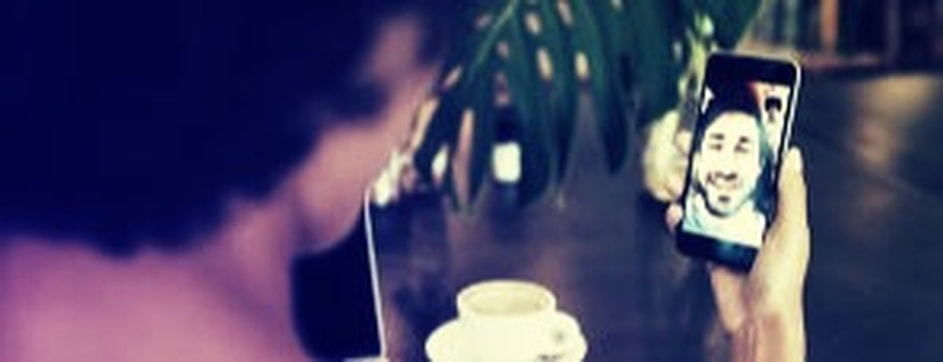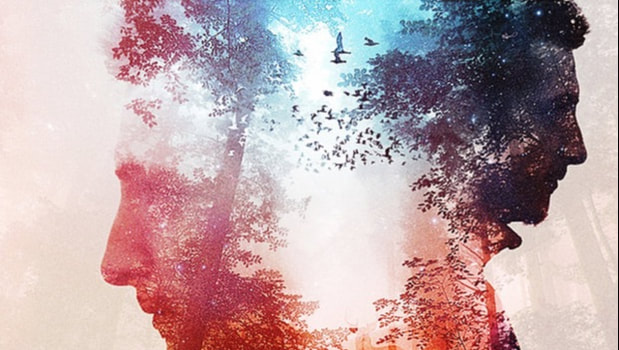THEORY |. PSYCHOLOGY
How technology has transformed
how we connect
— and reject — in the digital age
by Esther Perel
We have more romantic choices than ever before — and much more uncertainty. Psychotherapist and relationship therapist Esther Perel surveys how tech has completely changed the age-old process of dating and mating. |

Since time immemorial, human beings have lusted, loved, bonded, betrayed and broken up. Culture and religion have mediated the ways in which these perennial dramas play out — telling us who we can and cannot mate with, how many loves we may have, and whether we’re allowed to walk away, but more recently, technology has transformed the world of dating and mating. Although the need for love is ubiquitous and universal, how we love is changing fundamentally, as anthropologist Helen Fisher and I discussed in 2016.
The Internet has increased the pool of possible mates exponentially, giving us an unprecedented proliferation of choices. Once upon a time in the village, you got to pick between John and Mark, or Jane and Janet. Today we can target partners with carefully chosen criteria, filtering out undesirable character traits or perceived incompatibilities. A few decades ago, my patients would complain to me that they had difficulty meeting eligible people; I might have suggested that they take out a personal ad but most felt embarrassed to take such a step. Now the stigma has been removed and the Internet has become the village square. The process of mate selection has been democratized. Many singles feel empowered by dating sites to proactively seek a partner in a way they might not feel comfortable doing at a bar or café. In the past, older men and women might have had limited opportunities to meet others but they can find a larger pool of partners on the Internet. For those whose predilections fall outside the narrow walls of convention, the digital world provides a means to connect with like-minded others, subverting the isolation that they may feel. And, finally, if we don’t want to meet someone new, technology gives us the means to reconnect with the one that got away — your college sweetheart, first date from high school, the friend you wish would become something more. But while we relish the freedom that comes with having so many romantic options, we dread the uncertainty that also accompanies it. The swiping culture lures us with infinite possibilities, but it also exerts a subtle tyranny. The constant awareness of ready alternatives invites unfavorable comparisons, weakens commitment and prevents us from enjoying the present moment. “How do I know that I’ve chosen the right one?” we wonder. “What if there is someone better suited for me out there?” Many young people today live in a state of chronic self-doubt and FOMO (fear of missing out). There’s another hidden pitfall for those whose preferred matchmaker is Tinder or similar dating app. Because Tinder is set up so that users never encounter each other until both have confirmed their interest, I think of it as a rejection prevention app — it theoretically removes many of the anxieties around mutual attraction inherent in the early stages of a relationship. Yet it also removes the mystery, the need for pacing, and the seduction narrative that’s so central to courtship. It’s no accident that many of the millennials I encounter tell me that while they experience arousal, they are unfamiliar with desire. Our instant-gratification digital dating culture has numbed them to this critical feeling, without which it can be difficult to sustain a longer relationship. And if technology has changed how we choose, it’s also changed how we cheat. Though few experts can agree on percentages, they all agree that affairs are on the rise — and not least because women are rapidly closing the “infidelity gap.” As I discuss in my forthcoming book The State of Affairs: Rethinking Infidelity, the possibilities for dalliance are endless in our connected era. Sixty-eight percent of Americans own a smartphone, which means “you’re carrying a 24-7 singles bar in your pocket,” as comedian Aziz Ansari and psychologist Eric Klinenberg wrote in Modern Romance. You no longer even need to leave home in order to stray — you can have an affair while lying next to your partner in bed. The Internet has made sex “accessible, affordable, and anonymous,” as the late researcher Al Cooper pointed out in his book Sex and the Internet. That description applies equally to affairs, although I’d add another word: ambiguous. Arguments about infidelity have become more complex. What constitutes an affair, when an illicit relationship may not involve an exchange of kisses but an exchange of nude pics? Does a Snapchat with a stranger count as cheating in the same way as the old-fashioned romp in a motel room? As a result of the ever-expanding range of furtive activities that the online world plays host to, we must carefully rethink our definition of infidelity. When relationships end, technology again facilitates the process, but often not for the better. Indeed, a whole new vocabulary has emerged to describe the breakup strategies of the digital age. People talk about “ghosting” — when a partner abruptly stops communicating via text or online channels even though they sent 100 texts the day before. “Icing” is a less abrupt version of the same story, when the tone of communication suddenly turns cold and excuses abound for not getting together. “Simmering,” another variation, keeps a person hanging, with meetings postponed and more excuses. The term “stable ambiguity,” used by my colleague Terry Real, is quite apt for such relationships. By remaining in this state, people avoid both loneliness and commitment. This strange mix of consistency and uncertainty is increasingly common to relationships in the era of Tinder. All of this takes a toll on our emotional health. Often, it demonstrates a lack of empathy and a diminishment in relationship accountability. People can check out on each other without having to face the emotional consequences. True, in the past you could be rejected over the phone, or have your calls not returned, but the sheer volume of communication today — with the accompanying dopamine rushes — makes any rupture much more of a shock to the system. Roughly 40 million Americans are looking for love on the Internet. In relative terms, that’s equivalent to the entire population of Poland, scrolling through the human market, perusing row upon row of humans, and swiping left or right. Most of us, I think, would not want to go back to the previous relationship landscape. We cherish our freedoms and our options, whether loving or leaving. But as we navigate this world of digital connectedness, we’d do well to remember that behind the screens lie the same sensitive human hearts that have always longed for intimacy, empathy, meaning and adoration. ABOUT THE AUTHOREsther Perel is a licensed marriage and family therapist. She runs a private psychotherapy practice in New York City and speaks regularly on erotic intelligence, cross cultural relations and infidelity. She is the author of "Mating in Captivity: Reconciling the Erotic and the Domestic" and "The State of Affairs: Rethinking Infidelity."
|






